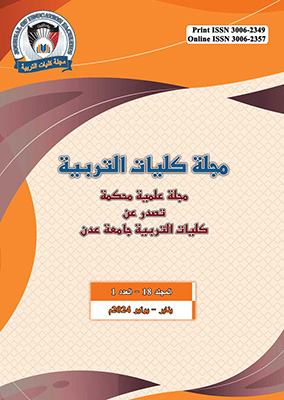Interpersonal Thinking and its Impact on Teaching Interpretation (An Original Study)
Keywords:
Interdisciplinary Thinking, Interdisciplinary Studies, InterpretationAbstract
In the area of cultural institutionalization, the concept of separation between sciences and the unilateral view played by the fields of knowledge, which generated the cognitive schism between them, because the idea of intentional convergence in the eyes of some is excluded and eliminates the spirit of cognitive independence of each art, however, some bold minds liberated from the mold of stereotypical framing of the sciences and moved their pens to open channels of communication through the establishment of the idea of Interdisciplinary study, which seeks integration and synergy between all sciences of human knowledge regardless of the nature of the cognitive content it discusses and the rules with which it interacts, and in order to continue the interdisciplinary revolution, our research titled "Interdisciplinary thinking and its impact on teaching the science of interpretation" came to change the stereotypical image in teaching the science of interpretation and market it in a creative way to all lovers of knowledge. The research contained an introduction, three investigations and a conclusion: The introduction dealt with the importance of the research, its objectives and methodology, the scientific reasons for institutionalizing the interdisciplinary teaching of exegesis, and the general structure of the research. In the first section, I discussed the historical stations on which the structural foundation was based, the importance of interfields of knowledge in building bridges of communication between different sciences that differ in form but agree in substance, the ability of this structural scientific system to liberate humans from behind the bars of intellectual dependence and give room for thinking tools to exercise the roles of innovation and cognitive creativity, laying the foundation stone for some sciences that have not yet formed the nucleus of their foundation, and establishing scientific rules governing this type of studies so that interfields are not employed negatively and create cognitive contradiction. In the second section, we provided the reader with knowledge that takes him out of the stereotypical framework in teaching the science of tafsir and into the realms of institutional modernization of the tools of the interpretive industry, away from presenting tafsir in the vocabulary of expressive monotony, working to find commonalities between tafsir and other fields of knowledge, and showing cognitive links such as the relationship between tafsir and the field of cognitive imagination and that the Quranic verse cannot be revealed unless it is subjected to deep analytical readings and how the Quranic context can blend the structural cognitive dimension with the suggestive connotations of the Quranic expression. In the third section, I discussed the positive effects of interdisciplinary thinking on researchers and the science of exegesis: The conclusion includes the most important findings and recommendations proposed to researchers and cognitive thought makers.
Downloads
Published
How to Cite
Issue
Section
License
Copyright (c) 2024 Journal of the Faculties of Education - University of Aden

This work is licensed under a Creative Commons Attribution-NonCommercial 4.0 International License.

